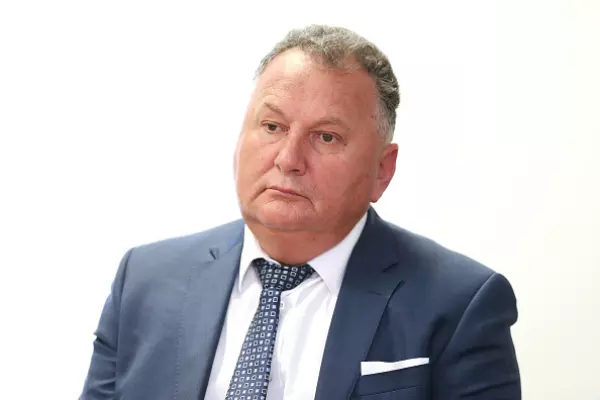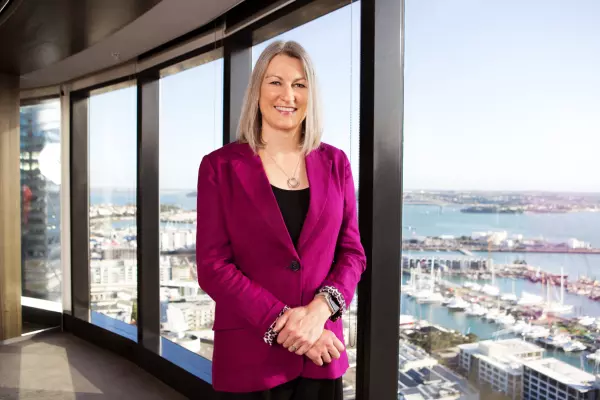In the face of an ever-looming climate crisis, New Zealand’s sustainable finance and investment sectors are starting to move in a greener direction.
But experts say investors need to accept that their return in the sustainable finance space is environmental as well as financial – and with that comes a whole new approach.
David Hall, a senior sustainable finance researcher at Auckland University of Technology (AUT), said investors need to start taking a more sophisticated approach before they fall behind.
“There are major obstacles to enabling more sustainable finance than we currently have – as a lot of investors are still hung up on market rates of return,” he said.
“Expecting that from sustainable finance products is just unrealistic at this point in time.”
Hall defines sustainable finance and investment as aligning the financial system towards creating “long-term” value.
“In order to create that long-term value, sustainable finance needs to take an integrated approach – and understand that the financial system and the wider economy are embedded in society and in the environment,” he said.
“So, if it degrades society and the environment, it will eventually inhibit its capacity to create long-term value. And those social and environmental foundations will be eroded to the extent that they can't affect the economy.”
To properly change for the better, he said the financial sector needs to “reset” the risk and return expectations that the system has been built on.
He said greed has been the “driving force” of the financial system for the last several decades.
“Investors need to understand that at this point in time, they might need to take lower rates of financial return in order to improve social and environmental returns – which don't have a price tag on them,” he said.
‘The engine for the economy’
Toitū Tahua, the centre for sustainable finance, is at the forefront of pushing for more sustainable changes in NZ’s financial sector.
“The financial system is the engine for the economy and a powerful lever for change,” chief executive Jo Kelly said.
She said attitudes are finally shifting from seeing finance as a “driver of sustainability issues” to seeing sustainable finance as a “crucial enabler” for solutions.
And already there are some “encouraging” examples of New Zealand businesses that have sustainable financial practices.
“More businesses are recognising that they need to shift to sustainable business practices,” Kelly said.
She said in the past several years, agricultural companies Silver Fern Farms, Synlait, Southern Pastures and Pamu had taken out over $505 million in sustainability-linked loans – loans given out by banks for climate-focused reasons.
Metlifecare, one of the country’s largest retirement village providers, also completed NZ’s largest sustainability-linked loan in December – priced at $1.25 billion and tied to the goal of achieving science-based targets like emissions reduction.
In 2021, $5.6b worth of sustainable bonds, which are investment securities that can only be used for environmental or climate projects, known as green bonds – were issued in NZ, with the total amount to date for 2022 so far sitting at $2.5b.
As of May 31 this year, the crown has also issued a total of $7.1b wellbeing bonds – bonds that raise finances for green renovation and construction of public housing.
“Increasingly, overseas investors are expecting the companies they invest in to have sustainability targets and show how they’re meeting them,” Kelly said.
The green sheen
Although hopeful about where the future of sustainable finance is heading, Barry Coates, ex-Green MP and president of the ethical investment checker Mindful Money, is concerned about 'greenwashing' in the financial sector.
“At the moment, there's a lot of greenwash and a lot of funds that are claiming to be sustainable or claiming to take action on climate change – but you're never quite sure whether they are or not,” Coates said.
“It’s important to be able to cut through the greenwash and find out who's part of the solution and who’s really behaving well versus who's just talking about it.”
Chapman Tripp partner and sustainable finance expert Luke Ford said he doesn't think it's a large issue in NZ.
“But I do think it's something that people should always have in their mind.”
Ford said, as the financial sector becomes more sustainable, there’s been discussion over whether the labelling of sustainable versus unsustainable practices will need to continue as more unsustainable models get phased out – but he doesn’t think this is a good idea.
“There’s value in having a label in the same way that there’s still value in labelling something organic,” he said.
“There's still a good reason to have that.”
Ford believes that most – if not all – businesses will have some access point to sustainable finance in the future but has concerns over how NZ’s small size could affect it economically as its reliance on international investment ramps up.
“If we fall behind [on sustainability], I think there is a risk that investors are going to be demanding more and if we can't provide that, then that might start shutting off the tap again for us here,” he said.
“We're often a little slow to pick up new products and, to some degree, there's a bit of hesitation around regulation and things like that. But if we continue to focus on it, we have to keep up.”
Expectations for government
Coates is confident of two things: that money makes the world go round and with that comes a lot of power – and responsibility – from those at the top of the financial food chain.
“The government could be calling on companies to be clear about how they're going to move towards net-zero and doing that voluntarily,” he said.
Coates said the government's new climate disclosure legislation, which is requiring 200 large financial institutions covered by the 2013 Financial Markets Conduct (FMC) to start making climate-related disclosures from 2023 onwards is a step forward – but it’s still not enough.
Hall thinks as the government adjusts its regulatory framework and puts prices on the value of biodiversity in the same way that they've done for carbon or adaptation value, the financial sector could really change for the better.
“There are ways that the government could monetise these things, and then there could be better alignment between financial return and some of these sustainable finance products,” he said.
But it’s not just the government that can do more.
Coates said many fund managers have a “tremendous amount of power” and levers they can pull if they want to reduce the impact of their portfolio on the environment and climate.
“Most investors, unsurprisingly, don't want their money going into fossil fuel production,” he said.
Kelly thinks there’s a “key role” for the government to help with more sustainable financial and investment innovation – ranging from building a pipeline of sustainable investment opportunities, de-risking investments and enabling KiwiSaver funds to allocate more of their funds to direct investment into NZ companies.
“Finance is not an end, it’s a means,” she said.
“The future of finance is dependent on our priorities for sustainability.”
Looking within
Climate change is forcing all businesses to make big changes, no matter their size, Jason Mika, an associate professor of Māori Business from the University of Waikato, said.
“The whole shebang, the whole system that we currently operate according to, relies on self-interest,” he said.
An alternative system is needed, he said, but right now there isn’t one.
“Everyone is scrambling to look for it because everyone knows that the current system is not going to look after us,” he said.
His hope is that the new sustainable financial systems that come out of the climate crisis include a better combination of indigenous and non-indigenous values, principles, models and practices.
“But it's going to be a tough call for people to give up the way that they currently live and what they value,” he said.
As much as Coates believes that the government and big corporations need to make the push for more sustainable finance and lead the way for others, he said it’s important that individual investors realise they also have power.
“Consumers have a huge role in driving some of those changes and where you invest your money makes a difference,” he said.
Investors need to remember that they have a choice on how they invest their funds because many people think it doesn’t matter where their funds are invested.
“Investments have consequences,” he said.
“Ultimately, whether the future of finance is going to be sustainable or not depends on the choices that consumers make.”















